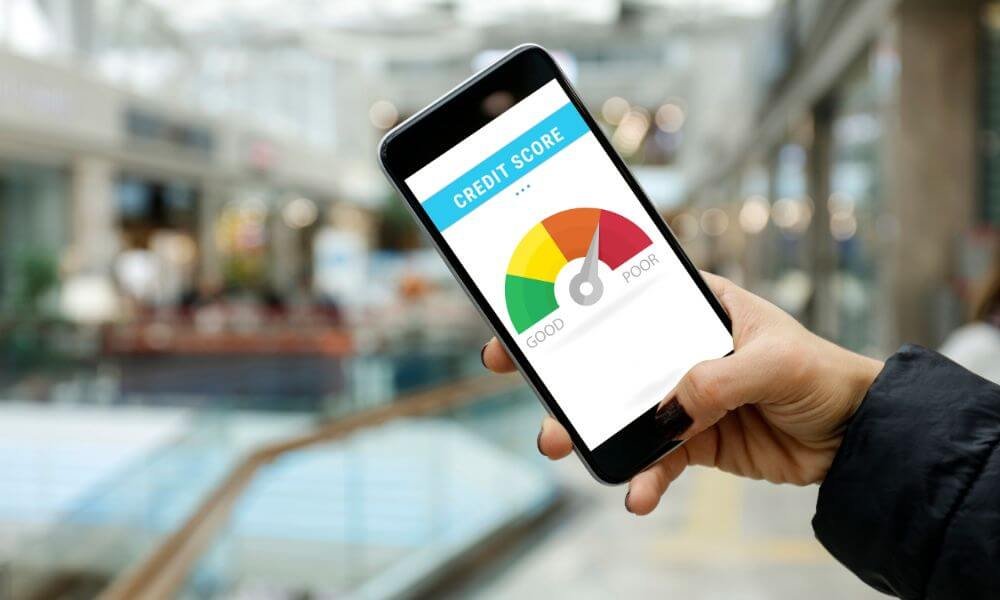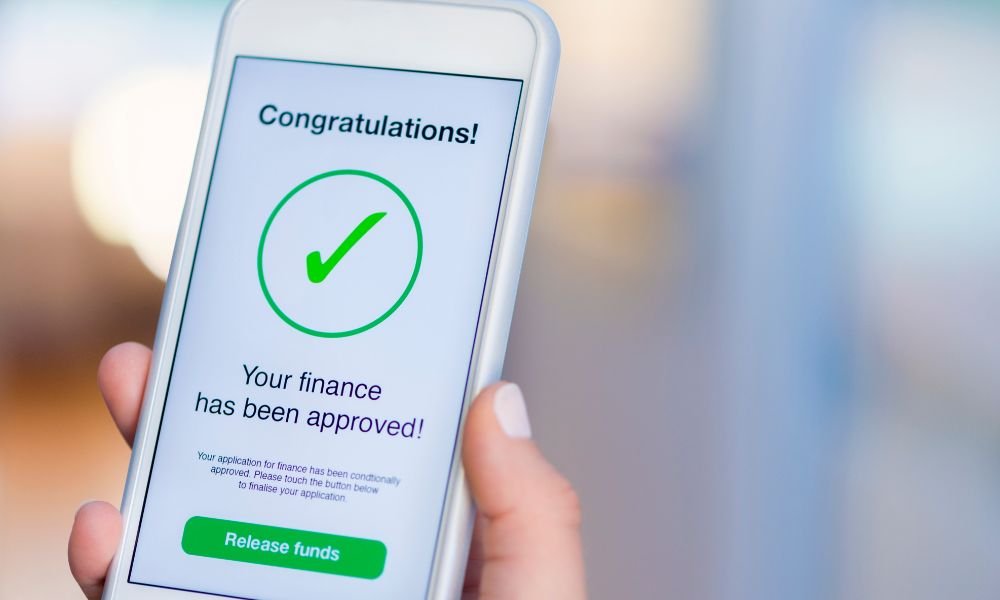A 12 months loan can be the financial boost to care for unexpected costs or more significant expenses you want to spread out over time. Whether dealing with a sudden car repair or considering a significant home renovation, these loans can offer flexibility and convenience. Offering a manageable way to borrow, 12 months loans allow you to spread the repayment over a year, reducing the pressure of paying back in a lump sum.

While borrowing can seem daunting, with the proper planning, a 12 months loan could aid in budget management without overstretching your finances. It’s all about understanding the loan and ensuring it aligns with your financial situation and repayment ability. So, let’s delve deeper into the world of 12 months loans and explore their many aspects.
What is a 12 months loan?
A 12 months loan, as the name suggests, is a type of loan you repay over one year. This duration balances manageable monthly payments and overall repayment amounts, making it a popular choice among borrowers. The loan can be secured or unsecured, depending on whether you provide collateral. Given their repayment structure, they can also fall into categories such as personal loans or installment loans.
These loans are versatile, catering to various financial needs, from consolidating debts and financing home improvements to covering unexpected expenses. The key benefit lies in the repayment period – over 12 months, providing the borrower with a structured payment schedule and ample repayment time.
Can I take out a 12 months loan with bad credit?
Yes, taking out a 12 months loan is possible even with bad credit. While traditional lenders might hesitate to approve a loan for those with poor credit scores, there are lenders like MyAnyDayCash that cater specifically to this group. They consider other factors beyond credit scores, such as income level, employment status, and financial stability.
However, it’s essential to remember that loans for bad credit often come with higher interest rates than those offered to borrowers with good credit. This is due to the perceived risk of lending to those with a history of missed payments or defaults. Therefore, as a borrower, it’s crucial to understand the terms and conditions of the loan thoroughly before agreeing to them.
What can I use the money for?
The versatility of a 12 months loan is one of its significant advantages. You can use the loan amount for various purposes depending on your specific needs. For instance, if you want to undertake a home renovation project to improve your living space and increase your property’s value, a 12 months loan can provide the necessary funds. Similarly, suppose you’re faced with unexpected expenses such as a hefty medical bill or a sudden car repair cost. This loan can be a lifesaver, enabling you to meet these costs without depleting your savings.
It’s also common for individuals to use a 12 months loan to consolidate high-interest debts. If you have several debts, particularly credit card debts with high-interest rates, you can take out a 12 months loan to pay them off. This way, you’ll only have to worry about a single monthly payment, often with a lower interest rate. Furthermore, if you’re planning a significant event like a wedding or looking to take a much-needed vacation, a 12 months loan can help cover these more significant expenses.
However, while a 12 months loan can be used for various reasons, it’s important to borrow responsibly. You should always consider if the expense is necessary and whether you can afford the monthly repayments before taking out the loan.
What is a 12 months loan not suitable for?
While a 12 months loan can be beneficial in many scenarios, there are certain situations where it might not be the most suitable financial solution. If you’re looking for long-term financial assistance, for example, a mortgage or a student loan, there may be better fits than a 12 months loan. These loans are designed to be paid off in a year, making them more suited to covering immediate or short-term financial needs.
Also, if you’re already struggling with debt and have a poor credit history, taking out a 12 months loan – or any other type – might not be advisable. In this case, it could be more beneficial to seek advice from a financial advisor or a debt counselor, who can guide managing your debts and improving your financial situation. Consider your repayment ability before taking out a loan to avoid further debt.

Lastly, if the loan is for an avoidable or non-urgent expense, such as a luxury purchase or an elective holiday, it might be better to save up for the expense rather than borrow. It’s crucial to remember that loans are not free money – they need to be repaid with interest, and failing to do so can have severe consequences for your financial health and credit score.
Can I repay a 12 months loan early?
In many cases, yes, you can repay a 12 months loan early. Most lenders allow borrowers to pay off their loans before the end of the term without any penalties. Early repayment can save you money on interest and can help improve your credit score. However, some lenders may charge an early repayment fee to cover the interest they would have received had the loan continued for the entire term.
It’s essential to read your loan agreement’s terms and conditions carefully and check with your lender if you’re considering making early repayments. This way, you’ll know any potential fees or penalties before deciding on this route. Remember, it’s always important to communicate with your lender and understand your financial obligations before deciding about your loan.
Will I need a credit check?
When applying for a 12 months loan, lenders usually perform a credit check to assess your creditworthiness. This involves looking at your credit history and score to understand how well you’ve managed your past debts. Credit checks help lenders decide whether to approve your loan application and determine the interest rate and terms they will offer. However, this is a relatively easy and fast rule for all lenders. Some providers offer 12-month loans with no credit checks, but these usually come with higher interest rates to offset the increased risk.

A credit check can either be hard or soft. A hard credit check leaves a mark on your credit file and can slightly lower your credit score. It gives a detailed view of your credit history and is typically used when a lender makes a lending decision. A soft credit check, on the other hand, does not affect your credit score and is usually used for initial eligibility checks or quotes. It’s essential to ask the lender what credit check they perform before applying.
In cases where you have a low credit score or no credit history, consider 12 monthly loans with no credit checks. While these loans might be more accessible, they often come with much higher interest rates and could lead to a cycle of debt if not managed correctly. It’s advisable to consider all other options and seek advice from a financial advisor before deciding on this type of loan.
Do I need a guarantor for a 12 months loan?
The requirement for a guarantor when applying for a 12 months loan varies from lender to lender. Some lenders offer 12 months of loans without a guarantor, while others may require one, particularly if the borrower has a bad credit history. A guarantor is a person who agrees to repay your loan if you cannot make the repayments. Having a guarantor can make it easier to be approved for a loan, as it provides the lender with additional security.
You can start your application process with MyAnyDayCash today to see if there is a suitable lender for you.
However, being a guarantor can be a significant responsibility, as it involves taking on the borrower’s debt if they default on their repayments. Therefore, it’s crucial that both you and your potential guarantor fully understand the implications before agreeing to this arrangement. A guarantor typically needs a good credit history and stable income to be accepted by lenders.
If you need a suitable guarantor or prefer a loan without one, some lenders offer non-guarantor loans. However, these loans might have higher interest rates than guarantor loans due to the increased risk for the lender. As always, exploring all your options and reading the terms and conditions thoroughly before deciding on a loan is crucial.
How long does it take to receive the money?
The speed at which you can receive the money from a 12 months loan can depend on a few factors. The most significant factors include the specific lender, the type of loan, and the application process. Some lenders can transfer funds to your account within a few hours or the next business day after your loan has been approved. Thanks to automated systems, online lenders often have a quicker turnaround time than traditional banks.

However, it varies how long it takes from when you start the application process to when you receive the money? It often depends on how quickly you can submit the required documents and how long the lender takes to review your application. The lender’s review process can take longer if additional verification or paperwork is needed.
It’s worth noting that while some lenders may advertise “instant” or “same day” loans, it’s usually best to expect the process to take at least one business day. As always, if you need the funds by a specific date, it’s a good idea to apply well in advance or contact the lender to understand their expected timeline better.
Where can I get a 12 months loan?
There are multiple sources from where you can secure a 12 months loan. Traditional banks and credit unions are the most common sources for these types of loans. They offer different types of personal loans that can be repaid over 12 months. These financial institutions are generally reliable and offer loans with relatively lower interest rates. However, their loan approval process may be slower, and they often require good credit scores from borrowers.
Another avenue is online lenders, which have gained popularity due to their fast approval and disbursement processes. Online lenders offer a variety of loan options, including 12 monthly loans. Some of them specialize in lending to individuals with less-than-perfect credit scores. However, online lenders often charge higher interest rates compared to traditional banks. It’s crucial to ensure that the online lender you’re dealing with is reputable and licensed to avoid falling victim to scams or fraudulent practices.
Credit brokers are also an option for securing a 12 months loan. They act as intermediaries between borrowers and lenders. Credit brokers can help you find a suitable loan by comparing various offers based on your requirements and credit profile. Working with a credit broker can save you time and effort, but it’s essential to ensure they are authorized and regulated by the appropriate authority.
What do I need to apply for a loan?
- Provide Basic Information: When applying for a 12 months loan, you must submit some essential details such as your full name, contact information, and Social Security number.
- Proof of Income: Lenders typically require proof of income to assess your repayment capability. This could be recent pay stubs or bank statements that display consistent income.
- Employment Details: Information about your employment, including your employer’s name and contact details, is often necessary. Providing these helps to reassure the lender of your financial stability.
- Credit History: Lenders consider your credit history and score during the loan approval. This helps them evaluate the risk involved in lending to you.
- Information about Collateral: In the case of a secured loan, you must provide details about the asset you are using as collateral.
- Co-signer or Guarantor Details: If you’re applying for a loan with a co-signer or guarantor, they, too, will need to provide their personal and financial information.
- Check Specific Requirements: Each lender might have unique requirements. It is beneficial to check these before applying to ensure you meet the eligibility criteria.
- Preparation: It is always a good idea to prepare all the necessary documents and information before starting the loan application process. This can make the process smoother and quicker.
Conclusion: 12 Months Loan
12 months loans can be a great financial tool when used responsibly. They offer the flexibility to spread repayments over a year, making it more manageable and less likely to disrupt your monthly budget. However, like any financial commitment, it’s crucial to consider your ability to repay the loan before taking one out. Always shop for the best loan terms and conditions that suit your financial situation.
No matter what type of loan you’re considering, it’s essential to research and understand all the terms and conditions before deciding. Consider seeking advice from a financial advisor or counselor if you need clarification. Remember, the right loan depends on your circumstances and financial goals.

